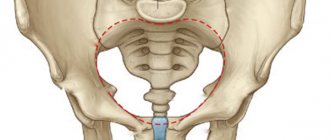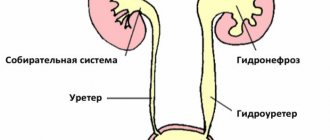Tracheitis in pregnant women is quite common. The reason for this is reduced immunity, which makes the likelihood of catching a respiratory disease higher than usual.
At the first symptoms of the disease, you should immediately consult a doctor. If the disease is neglected, there is a high probability that tracheitis can threaten the health of the baby or lead to termination of pregnancy. The danger lies in the lack of oxygen entering the circulatory system and the spasms that cause severe coughing.
Tracheitis is especially dangerous just before childbirth - there is a high risk of infecting the newly born child. To avoid unpleasant consequences, you should follow the recommendations of your doctor, who will tell you how and how to treat tracheitis during pregnancy.
Folk remedies for tracheitis
Tracheitis during pregnancy can be treated with folk remedies, but only with the permission of a doctor. These can be gargles, herbal decoctions and inhalations with herbal infusions.
Rinse
To relieve inflammation in the throat and as an antiseptic, for tracheitis, gargling with herbal decoctions is used:
- Pour 3-4 tablespoons of dried raspberry leaves into a liter thermos, pour boiling water and leave for 2 hours.
Gargle with this infusion three times a day. Do not use internally! Raspberry infusion can cause uterine cramps and bleeding. - Take equal amounts of sage, crushed oak bark and chamomile. Bring to a boil in two glasses of water, cover with a lid and leave to steep for 1 hour.
- Brew a handful of dried calendula flowers in a glass of boiling water. Half an hour is enough for the product to infuse.
You can also gargle with chamomile infusion, celandine, saline or soda solution. Rinsing should be done 3-4 times a day, an hour after meals, with a warm, but not hot, solution. After the procedure, you should refrain from drinking and eating for at least half an hour.
Inhalations
Inhalations during pregnancy can be carried out with any device: a compressor, ultrasonic, steam inhaler, or using a saucepan or kettle with a warm solution. Inhalations are the safest way to treat tracheitis in pregnant women. They relieve spasms and inflammation, thin and remove mucus from the respiratory tract.
- For half an hour, steam the expectorant mixture in a water bath: pine buds, chamomile, dry eucalyptus leaves, sage, peppermint - take a teaspoon of each plant and pour 500 ml. water.
This product is used for steam or heat-moisture inhalations. - It is useful to breathe over the steam from potatoes boiled with their skins. Mash the boiled fruits and add a small piece of butter.
- Add 3-5 drops of cedar, lavender, rose, citrus or coniferous essential oil to warm water at 50-55 degrees.
At elevated temperatures, steam and warm inhalations are prohibited. Even in the absence of elevated temperature, the duration of hot inhalations for pregnant women should not exceed 5 minutes.
Reasons for the development of tracheitis
Influenza, ARVI and other diseases lead to the development of tracheitis in pregnant women. The disease appears against a background of weakened immunity, vitamin deficiency, hypothermia, smoking (active and passive). The disease is caused by contact with certain infectious and food allergens.
Chronic rhinitis, tonsillitis and sinusitis are also dangerous with the likelihood of developing tracheitis.
A pregnant woman can become infected on public transport, when visiting a clinic, or in other crowded places. For this reason, doctors recommend refraining from traveling and going to crowded places, especially during seasonal epidemics.
See also
Treatment of grade 1, 2 and 3 adenoids in a child or removal by surgeryRead
Inhaling cold or polluted air provokes the development of this disease, as does being in a dusty room.
Tracheitis can be prevented by taking the necessary precautions. Maintaining a healthy lifestyle, walks in the fresh air, proper sleep and rest patterns will allow the expectant mother to avoid this and other diseases.
It is better to prevent the development of the disease than to subsequently risk the health of the unborn baby by taking antibiotics. If symptoms of the disease do appear, you should immediately consult a doctor: treatment for pregnant women is possible only under the guidance of a specialist.
Consequences of tracheitis for women and fetuses
Inflammation of the trachea is infectious in nature, which means it can lead to infection of the fetus. Tracheitis suffered in the early stages often leads to spontaneous miscarriage. It is also possible that viruses penetrate through the membranes of the fetus. As a result of such exposure, various malformations of the fetus can form, including those incompatible with life.
In the second half of pregnancy, tracheitis does not have a pronounced effect on the condition of the child. Only a painful cough that worries the expectant mother can be dangerous. Constant tension of the abdominal muscles during coughing attacks can provoke an increase in the tone of the uterus. As a rule, this phenomenon is temporary and disappears after complete recovery. With severe tracheitis and its transition to bronchitis, premature birth is possible.
Symptoms of the disease
Inflammation of the trachea is accompanied by a painful cough, which intensifies at night. At first, the cough is usually dry, then it becomes wet, and viscous sputum is released. Abdominal tension during coughing leads to increased uterine tone, which can lead to undesirable consequences.
When coughing, pain is felt behind the sternum and in the throat. This makes breathing difficult, which becomes rapid and shallow during illness. The patient is also plagued by a runny nose and sore throat.
The woman's general condition worsens, she feels weak and drowsy. Possible fever and enlarged lymph nodes. A pregnant woman may experience insomnia and loss of appetite, which is undesirable in her position.
Signs of the development of tracheitis are also sweating and a grayish tint to the skin caused by breathing problems. If tracheitis is accompanied by laryngitis, hoarseness will appear.
Prolonged and frequent coughing attacks can cause an increase in blood pressure.
Treatment
Classically, inflammation of the trachea is treated with antibiotics, warm compresses on the chest, inhalations, expectorants and mucus-thinning drugs:
- Antibacterial treatment is possible only for infectious complications that threaten the life and health of the mother: bronchitis, pneumonia. In this case, different versions of penicillins are used;
- Warming compresses - mustard plasters, dry heat (heating pad), and possibly the good old treatment with iodine mesh. You can use camphor alcohol and honey, eucalyptus and honey - soak gauze with them and apply to the chest, wrap warmly for half an hour. Treatment with compresses is carried out an hour before bedtime to relieve coughing at night;
- Tracheitis during pregnancy can be treated with inhalations, the use of a nebulizer is especially effective. A fine spray of mineral water, soda solution, ambroxol reaches the lumen of the trachea, moisturizes the mucous membrane, relieves inflammation, thins sputum, softens cough for the time between inhalations;
- Bioparox: local antibiotic fusafungine for inhalation. It comes in the form of a dosed spray with a convenient nozzle for the throat and nose. The drug is used 4 inhalations four times a day, no more than seven days. Treatment with Bioparox is contraindicated for children under 12 years of age, allergy sufferers, and those with a tendency to bronchospasm. Side effects are dryness and irritation of the mucous membranes, allergies, nausea and vomiting.
Treatment of inflammation of the trachea: what methods are allowed during pregnancy
Tracheitis must be treated carefully, using methods that are gentle on the body of the mother and fetus. The therapy is drawn up together with the attending physician, competent in matters of health of expectant mothers. Antibiotics are not prescribed, since the disease has a viral etiology and antibacterial drugs are simply ineffective.
Basic rules of treatment
Tracheitis should be treated comprehensively and begin with moisturizing and softening the laryngeal mucosa. To do this, a woman is recommended to follow several important rules.
- Create high humidity in the rest room. To do this, buy a special device or hang wet sheets. Carry out wet cleaning daily.
- Drink more liquid: compote, fruit drink, still mineral water, tea, warm milk.
- Perform steam inhalations, excluding medications and plants that are contraindicated during pregnancy.
- Warm compresses can be used, but be careful. Mustard plasters are excluded during pregnancy; the use of honey is allowed.
- High fever can be treated with paracetamol. No more than 2 tablets are allowed per day. In other cases, it is recommended to resort to folk remedies to normalize body temperature.
If you have a choice between lowering your fever and taking an “extra” pill, you should choose the second option.
Drug treatment during pregnancy
If tracheitis has a viral etiology, antiviral drugs are prescribed. It is allowed to treat infectious diseases with Remantidine, which is highly effective against influenza and inflammatory processes. If the cause of the disease is unknown, Interferon is recommended.
Treatment of sore throat is carried out with aerosols and gargling using herbal infusions, salt, soda and iodine.
During pregnancy, Bioparox can be used. This is a topical antibiotic that has nozzles for injecting a spray into the nose and throat. Treatment continues for 5-10 days and only as prescribed by a doctor!
Treatment must be started comprehensively, eliminating not only the symptoms, but also the cause of tracheitis and concomitant diseases.
Acute tracheitis is not a life-threatening disease, but during pregnancy it requires close attention. A viral disease should be treated at the first sign of its appearance to prevent complications that may affect the development of the unborn baby.
Folk remedies for treating tracheitis during pregnancy
To relieve cough and reduce inflammation, you can use other methods at home.
- Apricot, peach or almond oil. 30 drops in the nose are enough to relieve attacks of dry cough. Reduce inflammation in the larynx area. The head should be thrown back.
- The patient needs to maintain vocal rest. Do not strain the ligaments for 5–7 days. You can speak in a whisper, but only if absolutely necessary. Talking, much less shouting, is strictly forbidden. It would be very good if the expectant mother stayed at home the entire time during treatment. And I talked to my family using notes. Then she would get better faster.
- You should drink more warm liquid. You can have sour drinks or compotes, but not sparkling water. This way, the mucus will be better removed. The same goes for toxins. If you drink heavily, they will leave the woman’s body.
- In some situations, treatment of tracheitis in pregnant women allows the use of acupuncture massage.
- You can use mustard baths at home. Add a spoonful of powder to a bowl of heated water. The procedure lasts 15 minutes, after which you can put on warm socks. For a pregnant woman, such methods are not always good. It is necessary to consult with your treating gynecologist. Thus, attentiveness and accuracy will avoid premature birth or increased uterine tone.
- In some situations, if the doctor allows, you can lubricate your feet with turpentine ointment.
Methods for diagnosing tracheitis
After detecting one or more signs of the disease, a pregnant woman must consult an otolaryngologist.
To make an accurate diagnosis, the following diagnostic methods are used:
- bacteriological culture of sputum;
- bacteriological analysis of smears taken from the mucous membrane of the nose and throat;
- general analysis of urine and blood;
- laryngotracheoscopy.
Attention: during pregnancy, tracheitis most often turns into laryngotracheitis, which is important to consider when planning treatment, therefore, in some cases, accurate diagnosis is of decisive importance.
How and with what to cure tracheitis in women during pregnancy?
During pregnancy, a woman is especially vulnerable to various viruses and infections, since the body directs all its strength to bearing a child. During the autumn-winter outbreaks of viral diseases, a pregnant woman may experience tracheitis - inflammation of the trachea. This is an infectious disease, once identified, immediate action must be taken. In order not to harm the health of the fetus and mother, you need to know how to treat tracheitis during pregnancy. If treatment is ineffective, complications may develop.
Tracheitis affects a woman’s well-being and the course of pregnancy. Despite the limited number of approved drugs, timely treatment will eliminate possible consequences for the child.
Symptoms of the disease
Symptoms of tracheitis are very diverse. Among them:
- sore throat feeling;
- chest pain that appears after a hysterical cough;
- elevated temperature;
- weakness in the body, fatigue;
- hoarseness of voice;
- cough.
A similar clinical picture is typical for many diseases. The nature of the cough allows one to suspect tracheitis in pregnant women. It bothers a woman mainly at night or immediately after waking up. At the initial stage of the disease, the cough is unproductive, dry and irritating. As the disease progresses, the nature of the cough changes, and difficult to separate sputum appears.
If a cough in pregnant women appears spontaneously at night, then during the day each attack is usually provoked by some irritant. This could be a response to a deep breath, frosty air, laughter or a raised voice.
The period of the acute stage of tracheitis lasts for two to three weeks . If specific treatment is not prescribed at this stage, the disease becomes chronic. Depending on changes in the mucosa, there are two types of chronic tracheitis in pregnant women:
- Atrophic form. The disease is characterized by thinning of the mucous membrane and loss of its protective functions. As the inflammatory process develops, thin crusts form on the surface, which cause severe coughing attacks.
- Hypertrophic form. The concept of hypertrophy in medicine is an increase in the size of an organ. Likewise, changes occurring in the tracheal mucosa are characterized by thickening of its walls and dilation of blood vessels. During a cough, there is copious sputum production.
If left untreated, the inflammatory process, localized in the trachea, begins to spread to the lower parts of the respiratory system, causing damage to the bronchi and lungs. At this stage, there is an increase in cough and pain in the chest. The already precarious condition of the expectant mother will sharply worsen, provoking the appearance of new dangerous symptoms.
How is the disease diagnosed?
The therapist, if he detects symptoms of tracheitis, will write a referral to an otolaryngologist, who will conduct an in-depth examination. Diagnosis is carried out in the presence of the results of epidemiological studies:
- Anamnesis collection (questioning, visual examination). It is important to exclude the allergic factor.
- Bacteriological examination (smears are taken from the throat and throat), which helps determine the type of pathogen.
- Clinical blood test.
- Sputum culture and analysis of the sensitivity of inflammatory pathogens to the reaction to various components of medications.
- Sputum analysis for resistant mycobacteria.
- Qualitative, provocative and indirect allergy tests.
Instrumental diagnostics are widely practiced, including radiography, rhinoscopy, laryngoscopy, pharyngoscopy and examination of the sinuses using an X-ray machine.
Symptoms of tracheitis in adults and treatment are determined by the doctor. If the diagnosis is incorrect and the moment for favorable therapy is missed, pulmonary complications may occur (profile pathologies of the pulmonologist), tuberculosis and other diseases may develop.
Tracheitis during pregnancy has the following symptoms
Tracheitis during pregnancy manifests itself in the same way as in all other groups of patients. The main symptom of the disease is a painful cough and a feeling that there is something in the throat. The cough is mainly dry, sometimes a small amount of mucous and mucopurulent sputum may be released. The attacks are worse at night and in the morning. Sometimes the cough is so strong that it leads to severe burning in the chest, headache and throbbing in the temples.
Other signs of tracheitis:
- elevated temperature (usually no more than 38 C);
- general weakness;
- labored breathing;
- feeling of tightness in the chest when inhaling;
- a sore throat;
- sensation of a foreign body in the throat;
- hoarseness and hoarseness (sometimes complete loss of voice);
- feeling of lack of air.
The intensity of symptoms depends on the severity and type of disease. Acute tracheitis gives more pronounced symptoms and a significant increase in temperature, chronic tracheitis has vague symptoms.
Symptoms encountered by a pregnant woman
As a rule, the first symptoms of tracheitis do not keep you waiting and appear after the development of inflammation of the respiratory tract. One of the most important signs of acute tracheitis is an annoying cough, which mainly intensifies at night and in the morning. Also, suffocating coughing attacks can often occur when taking a deep breath (yawning), laughing, or sudden changes in temperature.
During an attack, the patient feels an irritating pain in the throat, which radiates to the sternum. This is the reason that almost everyone exposed to this disease tries to forcefully reduce their breathing capacity in order to avoid developing a new coughing attack. All the symptoms of tracheitis provoke the woman to experience rapid, shallow breathing, as well as a suffocating cough. And with a small accumulation of sputum, an attack of a protective reaction of the female body occurs, which is designed to cleanse the lungs.
If tracheitis accompanies laryngitis, the patient may become hoarse or lose her voice for a while. The general condition of the patient usually changes slightly:
- body temperature does not rise much;
- sputum is viscous and comes out in small volumes before treatment;
- severe pain when coughing;
- a sore throat.
Sometimes tracheitis also affects the upper bronchi. Then tracheobronchitis rapidly develops (the cough is painful and constant). Body temperature rises to 39.
Acute tracheitis during pregnancy: possible complications
Tracheitis in pregnant women most often develops due to a viral infection caused by bacteria. The disease can be triggered by the following factors: hypothermia, too cold, air, dry air, allergens, smoking, inflammation of the sinuses. Mostly pregnant women suffer from frequent paroxysmal coughs.
The acute form of the disease is characterized by a severe and painful cough and high body temperature.
Acute tracheitis practically cannot be cured in less than three weeks. Untimely treatment of the pathology leads to the onset of the chronic phase. To make a diagnosis, the doctor needs to conduct a visual examination. The doctor will determine what led to the pathology, after which he may prescribe additional diagnostics.
Possible complications:
- The transition of acute tracheitis into chronic.
- The development of pneumonia, dangerous to the child’s health.
A pregnant woman who exhibits symptoms of tracheitis should not self-medicate. Timely diagnosis and treatment of the disease will avoid complications that can negatively affect the child’s health. To avoid taking unwanted drugs, physiotherapeutic treatment is prescribed during pregnancy. It is better to bring down the temperature using traditional methods; you should also avoid using antibiotics, although new generation antibiotics do not harm health.
Complications with tracheitis
If the patient does not immediately turn to a specialist for help, tracheitis, treatment of which at home has not brought positive results, is likely to develop into a more serious disease of the upper respiratory tract. In this case, treatment will most likely be longer and more complex.
Often, untreated acute tracheitis leads to the development of tracheobronchitis and bronchopneumonia . If the patient is a pregnant woman, the course of the disease can lead to complications during childbirth, as well as significantly undermine the health of the unborn baby.
A long-term inflammatory process in combination with morphological changes in the mucosa can lead to the appearance of endotracheal neoplasms , which can be both benign and malignant. Allergic tracheitis under constant exposure to an allergen can develop into bronchial asthma.
Preventive measures to prevent relapse of the disease
Prevention of acute and chronic tracheitis mainly depends on early diagnosis and the patient’s lifestyle in general. At the first appearance of symptoms of a viral disease, such as a persistent cough that gets worse in the evening, runny nose, or general malaise, you must quickly seek a professional examination from a specialist. Do not forget that tracheitis is contagious, since its source is a viral infection.
It is very important to try to lead a healthy lifestyle. Fresh air, exercise, proper balanced nutrition, and basic hygiene can work real miracles. By adhering to these simple rules and instilling them in your own children, you can protect yourself and them from various kinds of viral diseases and other ailments.
source
Drug therapy
With mild symptoms, you can do without medications and limit yourself to traditional therapy. If the temperature reaches 38 degrees, and the cough has become paroxysmal, the attending physician can prescribe medications that are the safest in this period. In most cases, the cause of tracheitis is a viral infection, which must be combated with antiviral drugs.
Name of the drug Action Form of release, dosage Special instructions
| Viferon | Pronounced antiviral, immunostimulating. The composition includes interferon and vitamins C, E. | Rectal suppositories of different dosages (150 thousand, 500 thousand, 1 million, 3 million) | Recommended from 14 weeks |
| Engystol | Homeopathic medicine. Immunomodulatory, antiviral, anti-inflammatory | Pills. Take every 15 minutes for the first two hours during the acute period of the disease. From the next day, take three times a day, a quarter of an hour before meals or an hour after. | Contains lactose |
| Influcid | Homeopathic medicine. Immunomodulatory, antiviral, anti-inflammatory | Pills. During the acute period, take a tablet every hour and a half (6 tablets). From the next day - three times a day. Take half an hour before or after meals | Contains wheat starch and is therefore prohibited for those with celiac disease. Also has lactose |
| Aflubin | Homeopathic medicine. Immunomodulatory, antiviral | Pills. The first two days – 1 tablet three times a day. From the third day - twice a day. Dissolve the tablet half an hour before meals or an hour after. | Contains lactose. There may be a change in taste due to the herbal composition of the medicine, which is acceptable |
| Oscillococcinum | Homeopathic medicine. Immunomodulatory, antiviral | Pencil case with granules. Take twice a day. Dissolve the contents of the pencil case under the tongue | Prohibited for cases of fructose and galactose intolerance |
Antibacterial agents are prescribed exclusively by a doctor after confirmation of a bacterial infection (bacterial culture).
Antibiotics for tracheitis are prescribed quite rarely, only in complicated cases with the development of bronchitis, pneumonia or tonsillitis. Ceftriaxone, Cephalexin, Cefepime, Sumamed and Amoxiclav are allowed for pregnant women. The dosage of medications and the duration of the course are determined by the doctor.
In addition to antimicrobial drugs, it is necessary to take medications that reduce cough. The following drugs are allowed for pregnant women:
Doctor Mom lozenges. They belong to the group of expectorants consisting of plant components (licorice root, ginger, emblica fruits). Round lozenges have fruit flavors. They have anti-inflammatory, expectorant, bronchodilator, antimicrobial and mild analgesic effects. The lozenge should be dissolved in the mouth every 3 hours;- Bromhexine is produced in the form of syrup. Has a strong expectorant effect. You should take 7-15 ml three times a day. Usually the effect is observed after 3-5 days. Throughout treatment, you need to drink plenty of fluids, which will also help reduce the viscosity of sputum and stimulate its elimination. The drug is incompatible with alkaline solutions;
- Prospan in the form of syrup is classified as herbal medicine. The action is aimed at reducing the viscosity of bronchial secretions, active removal of sputum and dilation of the bronchi. Shake the bottle before use and take 5-7 ml three times a day before meals. Contraindications include fructose intolerance. Caution is necessary in the presence of diabetes and liver failure.
Treatment of tracheitis in pregnant women should include control of fever, because elevated temperature increases sweating and increases the risk of dehydration and hypoxia.
Physical cooling methods, such as drinking plenty of fluids or taking warm showers, are usually recommended.
Antipyretics should be taken at temperatures above 38 degrees. To reduce hyperthermia, Paracetamol is used in the form of tablets or syrup. The medicinal effect of the drug is based on the effect on the hypothalamus, namely, the thermoregulation center. It also has a slight anti-inflammatory and analgesic effect. A decrease in temperature is observed 60-90 minutes after administration.
If you have a sore throat, it is recommended to use:
- Bioparox in aerosol form. The action of the drug is aimed at destroying microbes and suppressing inflammation. The medicine should be sprayed 4 times a day behind the posterior pharyngeal wall and inhaled deeply so that the particles of the drug penetrate the mucous membrane of the larynx and trachea;
- Inhalipta. Has antimicrobial and analgesic effects. It is enough to irrigate the back wall of the pharynx three times a day;
- Miramistin - for rinsing the oropharynx. Has an antimicrobial effect.
Risk factors
In many cases, bacteria and viruses, once on the mucous membrane of the nose or tonsils, do not spread further. Their protective properties prevent this. But there are a number of factors that increase the risk of infection spreading through the respiratory tract. These include:
- prolonged stay in rooms with polluted air
- excessive dryness of inhaled air
- decreased immunity, vitamin deficiencies
- chronic infections of the mouth and nose (tonsillitis, sinusitis, periodontitis).
Prevention
During pregnancy, a woman should be especially careful about her health and lifestyle. Smoking is strictly prohibited: not only does it irritate the respiratory tract, causing acute tracheitis, but tobacco smoke is harmful to all organs and systems, it has a toxic effect on the fetus.
The most common is viral tracheitis. It is transmitted by airborne droplets, so to avoid infection you should avoid contact with sick people. During epidemics, if possible, do not use public transport and do not visit crowded places. Daily wet cleaning will eliminate fungi and bacteria in the apartment.
If you have previously suffered from allergic tracheitis, avoid contact with allergens and take care to strengthen your immune system. Strengthen your body, eat healthy food, maintain hygiene, walk often in the fresh air, lead an active lifestyle (yoga, Pilates, swimming and other moderate physical activity are allowed for pregnant women).
Prevention of tracheitis
The risk of contracting tracheitis during pregnancy is quite high. However, if you follow precautions, it is quite possible to avoid the disease.
What is included in the complex of preventive measures? First of all, follow these rules:
- carry out daily wet cleaning;
- observe the ventilation mode of the room;
- do not neglect personal hygiene;
- install a humidifier in the room;
- toughen up and walk more in the fresh air;
- play sports;
- take multivitamins if there are no contraindications;
- eat a balanced diet;
- During periods of exacerbation of viral diseases, avoid crowds of people.
Do you know how to do a pregnancy test with soda? We'll tell you!
Read: Why is scarlet fever dangerous for pregnant women?
Find out if pregnant women can dance.
As you can see, all measures are aimed at maintaining a healthy lifestyle, which, by the way, is useful not only during pregnancy.
Today we found out what is the safest way to treat tracheitis for pregnant women. But the main thing you must remember is do not self-medicate and immediately go to the hospital for any illness.
Features of treatment of tracheitis in pregnant women
The main thing that the expectant mother should remember is that if a paroxysmal dry cough appears, you cannot begin to treat the disease without finding out the exact cause. At this stage of her life, a woman is responsible not only for herself, but also for the little man she carries under her heart. Therefore, the first thing you need to do is undergo a full examination by a doctor. Next, the patient will only need to strictly follow all instructions and recommendations.
Since not all prescribed drugs are suitable for women during pregnancy, treatment of tracheitis during pregnancy is carried out jointly by a therapist and an obstetrician-gynecologist!
The basis of treatment for tracheitis is drugs whose action is aimed at stopping the inflammatory process and stopping a debilitating cough. Additionally, symptomatic therapy and active hydration of the mucous membrane are carried out:
- Antibiotics for tracheitis are prescribed only if the cause of tracheitis is confirmed to be bacterial. If antibacterial drugs are unavoidable, treatment is carried out using penicillins, which do not have a teratogenic effect on the fetus. If you are intolerant to penicillin antibiotics, the use of cephalosporins (intramuscular) is acceptable.
- The use of antiviral drugs in the first trimester of pregnancy is undesirable. Moreover, numerous studies have shown that all drugs in this category do not have proven effectiveness. If there is still a need to shorten the acute period and alleviate the condition of the expectant mother, Viferon can be used in the treatment of tracheitis in the second and third trimester of pregnancy.
- Antitussives. Attacks of hysterical cough and the resulting insomnia are too risky for the expectant mother and her baby. Therefore, for dry, non-productive cough, their use is necessary. The safest drugs for women during pregnancy are those whose active ingredient is dextromethorphan.
- Mucolytics. Mucus thinners are approved for use from the second trimester of pregnancy. They are not prescribed simultaneously with antitussive drugs due to possible side effects associated with stagnation of sputum in the respiratory tract.
- Symptomatic treatment. When the temperature rises above 380, taking antipyretics based on paracetamol is indicated . Taking aspirin during pregnancy is strictly contraindicated. Acetylsalicylic acid has the property of thinning the blood, which can lead to the onset of uterine bleeding.
- Antiseptics. Herbal lozenges, such as eucalyptus or mint, may be recommended in this category. The concentration of herbs there is low, so they will not have a negative effect on the fruit. Moreover, these drugs increase salivation, resulting in effective hydration of the mucous membrane.
- Inhalations with a nebulizer. To relieve cough and relieve irritation from the mucous membrane, it is recommended to supplement drug treatment with inhalations with alkaline mineral water. Steam inhalations for tracheitis during pregnancy are not recommended.
Treatment of chronic tracheitis is practically no different from treatment of the acute form of the disease. But full recovery will take much longer.
It is strictly not recommended to use folk remedies in the treatment of tracheitis during pregnancy. Typically, such decoctions and infusions include herbs with a high content of alkaloids, known for their toxic effects on the fetus. In addition, most of them can cause miscarriage or premature birth.
With timely treatment, the prognosis is quite favorable, and to cure tracheitis during pregnancy, it will take only 10-14 days. To avoid possible complications, during this period patients need to be provided with plenty of fluids, access to fresh air and bed rest.
Special attention should be paid to healthy eating. All salty, spicy and sour foods are excluded from the diet due to their irritating effect on the inflamed mucous membrane. Hot and solid foods are also prohibited. But the amount of vegetables and fruits in the menu should be increased - now the expectant mother needs vitamins more than ever.
Treatment of tracheitis in the first trimester of pregnancy
When the first signs of the disease appear, the expectant mother should definitely consult a doctor. Self-medication in this situation is not acceptable, because now the woman is responsible not only for her health, but also for the condition of her child. The use of any medications is permissible only after examination and a thorough examination with identification of all concomitant pathologies.
In the first trimester of pregnancy, doctors try to do without prescribing a large number of drugs . The fewer medications the expectant mother receives during this period, the greater the chance of a successful pregnancy outcome. Antibiotics are prescribed only if the bacterial nature of tracheitis is confirmed and only in cases where their benefit significantly outweighs the possible harm.
In the early stages of pregnancy, mucolytic drugs are actively used to treat cough due to tracheitis. These agents thin the viscous mucus accumulated in the trachea and help remove it from the body. Cleaning the trachea alleviates the condition of the expectant mother and significantly speeds up the healing process.
Of the mucolytics allowed in the first trimester of pregnancy, licorice root or “Mukaltin” is most often prescribed. Such drugs are well tolerated by pregnant women and do not have a negative effect on the condition of the child. The course of treatment lasts from 5 to 10 days and can be extended on the recommendation of a doctor.
Prohibited drugs
The vast majority of manufacturers of broad-spectrum antibiotics indicate pregnancy (especially the first trimester) in the instructions in the contraindications column. When tracheitis occurs, symptoms in adults appear in an acute form. Therefore, doctors prescribe medications that stimulate improvement in general condition.
During pregnancy, a woman is prohibited from taking any medications without the consent of her doctor. Even if the cough and chills are very bothersome, you should seek qualified help (you can call an ambulance or visit the hospital yourself).
List of drugs prohibited during pregnancy:
- Antibiotics (tetracycline, macrolide, aminoglycoside).
- Analgesics (Aspirin, Analgin).
- Sleeping pills (with tracheitis it is difficult to sleep due to coughing).
- Drugs that interfere with the absorption of folic acid in the body.
- Cytostatics.
Important: if a woman takes drugs from a prohibited category in the early stages of pregnancy without a doctor’s advice. There are risks for the fetus that threaten miscarriage and developmental abnormalities.
Treatment of tracheitis in the second and third trimesters of pregnancy
After 16 weeks, antibiotics are actively prescribed for bacterial tracheitis. Pregnant women are allowed to use drugs from the group of penicillins, cephalosporins and macrolides. The dosage and duration of administration are determined by the doctor. In most cases, within 5-7 days of using antibiotics it is possible to cope with the main symptoms of the disease.
For viral tracheitis, no specific drugs are prescribed. To increase the body's defenses, expectant mothers are recommended to take a course of immunomodulators. Viferon is approved for use from 14-16 weeks of pregnancy. This drug activates the immune system and thereby helps the woman cope with the disease. The course of therapy is up to 10 days.
Expectorants are also actively used in the second and third trimesters of pregnancy . The most popular drugs include Doctor Theiss, Doctor Mom, Gedelix and other drugs. These mucolytics remove phlegm well and help improve the condition of the expectant mother. Some of these drugs can be used using a nebulizer - a special device that facilitates the delivery of medicine to the trachea and bronchi.
Doctors recommend not to forget about non-drug methods that speed up the healing process. If tracheitis develops, drinking plenty of warm fluids is recommended. This could be cranberry, currant or lingonberry juice, dried fruit compote or not too hot tea. You can add honey and lemon to your drinks to taste.
Tracheitis in pregnant women is often accompanied by fever. Doctors recommend refraining from taking antipyretics in the first trimester of pregnancy. After 24 weeks, you should also not get too carried away with paracetamol and ibuprofen. These drugs affect the synthesis of important substances - prostaglandins, which in turn helps to increase the tone of the uterus. Long-term use of antipyretic drugs in the third trimester can lead to the birth of a baby prematurely.
Treatment - drugs
Self-medication is strictly prohibited. This causes complications not only for the expectant mother, but also for the fetus.
Treatment involves an integrated approach to solving the problem. Patients are prescribed:
- Preparations for dry cough. In the first days of the disease there is no sputum. Coughing can irritate your throat and also make it difficult to sleep at night. Therefore, a woman can be prescribed Sinecod or Codeine;
- Mucolytics and expectorants. Recommended for use in case of mucus formation. They dilute mucus and promote its removal. Converts a non-productive cough to a wet one;
- Antipyretic drugs. Needed when body temperature rises to 38 degrees. A safe group of medications includes Paracetamol in the form of syrup, tablets or suppositories. Other drugs are contraindicated in pregnant women;
- Antibiotics. Prescribed for bacterial infection. Contraindicated in the first trimester. Effective but safe are Flemoxin Solutab, Suprax, Sumamed, Amoxicillin;
- Lozenges. Eliminate pain and sore throat, soothe the throat. They have an antiseptic, antibacterial, anesthetic effect. Approved drugs include Lizobact, Faringosept.
The duration of the treatment course depends on the degree of damage to the body. Typically, drug therapy continues for 7–10 days.
How dangerous is tracheitis for the expectant mother and fetus?
During pregnancy, any inflammatory disease poses a threat to the life of the fetus. Tracheitis is especially dangerous in the early stages. In the first trimester, all organs and systems of the baby actively develop. If tracheitis is viral in nature, and these viruses penetrate the placenta, this can lead to:
- pathologies in fetal development (possibly even incompatible with life);
- spontaneous abortion;
- freezing of the fetus.
For the mother, the disease is dangerous because it can become chronic or provoke bronchitis. Acute tracheitis gives complications such as laryngitis, pharyngitis, rhinotracheitis. The chronic form is characterized by a long course and painful cough.
It is important to understand that prolonged inflammation (with chronic tracheitis) can lead to morphological changes in the tracheal mucosa. This is fraught with endotracheal neoplasms (benign and malignant). If the disease is of an allergic nature, and the patient does not stop contact with the allergen, there is a risk of developing bronchial asthma with all the ensuing consequences.
If the disease develops in the third trimester, then it is not the infection itself that is dangerous, but a severe cough. It leads to hypertonicity of the uterus and increased pressure in the abdominal cavity. This can cause premature birth, gestosis, placental abruption. During childbirth, infection of the fetus may occur. That is why treatment of tracheitis in pregnant women should be carried out immediately after the first symptoms appear.
General characteristics of tracheitis
Tracheitis is an ENT disease characterized by inflammation of the mucous membrane of the trachea, a tube located between the bronchi and the nasopharynx.
In the vast majority of cases, tracheitis develops against the background of influenza or ARVI. The disease is often accompanied by concomitant pathologies:
- laryngitis;
- rhinitis;
- pharyngitis.
During pregnancy, it is important to determine the etiology of the disease in order to adequately plan treatment, prevent the development of complications and the transition of tracheitis to a chronic form.
Types and forms of the disease
Regarding the nature of occurrence, tracheitis is of two types:
- infectious – provoked by pathogenic bacteria, viruses or, in rare cases, fungi;
- allergic, the root cause of which is the allergy itself.
As for the characteristics of the course, the following forms are distinguished:
- acute – observed against the background of damage to the mucous membrane by bacteria and viruses, the clinical picture resembles a common acute respiratory infection;
- chronic – a complicated form of acute tracheitis.
In the chronic phase, tracheitis causes changes in the trachea:
- hypertrophic, in which the mucous membrane swells, the vessels dilate and pus discharges abundantly;
- atrophic - the mucous membrane becomes thinner, becomes smooth, shiny, and acquires a gray tint.
Before starting treatment for tracheitis during pregnancy, the doctor must carry out diagnostics, the purpose of which is to identify the type and form of the disease.
Symptom complex of the disease
Inflammation usually develops rapidly. Almost immediately after infection, the patient may feel a sore and sore throat.
Other pronounced manifestations of tracheitis include:
- obsessive, persistent, suffocating cough, especially worse at night and in the morning, after inhaling or sneezing;
- discharge of mucopurulent sputum, both moderate and abundant;
- body temperature is about 37–38 degrees;
- general weakness;
- pain or burning behind the sternum, persisting for some time after a coughing attack.
Tracheitis is often accompanied by concomitant diseases, so the following are often observed in parallel:
- nasal congestion;
- sore throat;
- hoarseness;
- absolute loss of voice.
If you do not begin timely treatment of tracheitis during pregnancy, then there is a high probability that it will develop into bronchitis or pneumonia.
Causes of tracheitis in pregnant women
In pregnant women, the risk of contracting tracheitis increases due to reduced immunity. It is especially easy to get sick in the off-season during the period of exacerbation of colds.
We recommend reading about methods of treating sinus tachycardia in pregnant women.
Find out if pregnant women can eat peanuts.
Other factors in the development of tracheitis are:
- hypothermia of the body;
- frequent stay in dusty rooms;
- passive or active smoking;
- infectious lesions of the body;
- diseases of internal organs;
- allergic processes;
- penetration of a foreign body into the trachea.
Complications during pregnancy
During pregnancy, tracheitis, in particular its secondary forms: laryngotracheitis and tracheobronchitis, are dangerous due to possible complications if left untreated.
Important: in the first trimester, the infection can penetrate the placental barrier, causing miscarriage or pathologies incompatible with life in the development of the fetus.
After the twentieth week of pregnancy, the disease does not pose a serious threat. However, prolonged tension of the abdominal muscles during coughing attacks often leads to increased uterine tone. In later stages, tracheitis is fraught with premature birth.
People's help
Tracheitis can be treated with traditional medicines. They act gently and cause virtually no adverse reactions.
Pregnant women are prohibited from coltsfoot, oregano, aloe, pine buds, thyme and sage for oral use.
Inhalations are most useful for tracheitis, but they are not recommended for fevers above 38 degrees. For oral administration, you can prepare decoctions based on chamomile, viburnum, lingonberry, rose hips, ginger, linden or black currant. They will saturate the body with vitamins, relieve coughs and strengthen immune defense.
Principles of treatment of tracheitis
Treatment of the disease must certainly begin with a visit of the pregnant woman to a specialized specialist.
Important: during pregnancy, it is strictly forbidden to self-medicate tracheitis.
After the diagnostic stage and confirmation of the diagnosis, the doctor decides on the type of therapy. In this case, the period of pregnancy at which the woman is of primary importance.
Drug therapy
If tracheitis of bacterial etiology is detected, the woman is prescribed drug treatment, in particular mucolytic drugs:
- Mukaltin;
- licorice root syrup.
The principle of action of these medications is to liquefy sputum and promptly remove it from the trachea.
Attention: it is not recommended to lower the temperature below 38.5 degrees. If it increases significantly, it is permissible to use Ibuprofen, children's Panadol, Paracetamol.
In a pregnant woman in the second trimester, tracheitis can be treated with both mucolytics and antibiotics:
- penicillins;
- macrolites;
- cephalosporins.
ethnoscience
If for one reason or another drug therapy is not possible, the doctor has the right to resort to traditional methods of treatment. Inhalation sessions using medicinal herbal preparations are considered the most effective.
Attention: pregnant women are strictly prohibited from being treated with mustard plasters or taking warm baths.
Please note that acute tracheitis during pregnancy requires treatment in a hospital, especially in the early stages. Traditional methods are ineffective in this case.
Sources
- https://opnevmonii.ru/bolezni/traxeit/traxeit-u-beremennyx.html
- https://VipLor.ru/gorlo/traheit-pri-beremennosti
- https://spuzom.com/traheit-pri-beremennosti.html
- https://okashel.ru/beremennost/traxeit-pri-beremennosti.html
- https://GorloUhoNos.ru/gorlo/mama/traxeit-pri-beremennosti-chem-lechit.html
- https://moeditya.com/pregnancy/bolezni-pri-beremennosti/traheit-pri-beremennosti
- https://pulmono.ru/gorlo/traheit/lechenie-traheita-pri-beremennosti
- https://nmed.org/tracheit-pri-beremennosti.html
- https://rucheyok.ru/beremennost/traheit-pri-beremennosti-4-soveta-po-lecheniyu
- https://liergroup.ru/bolezni-gorla/vospalenie-trahei/kak-i-chem-lechit-traheit-pri-beremennosti.html
- https://MyTerapevt.com/traheit/u-beremennih.html
[collapse]











